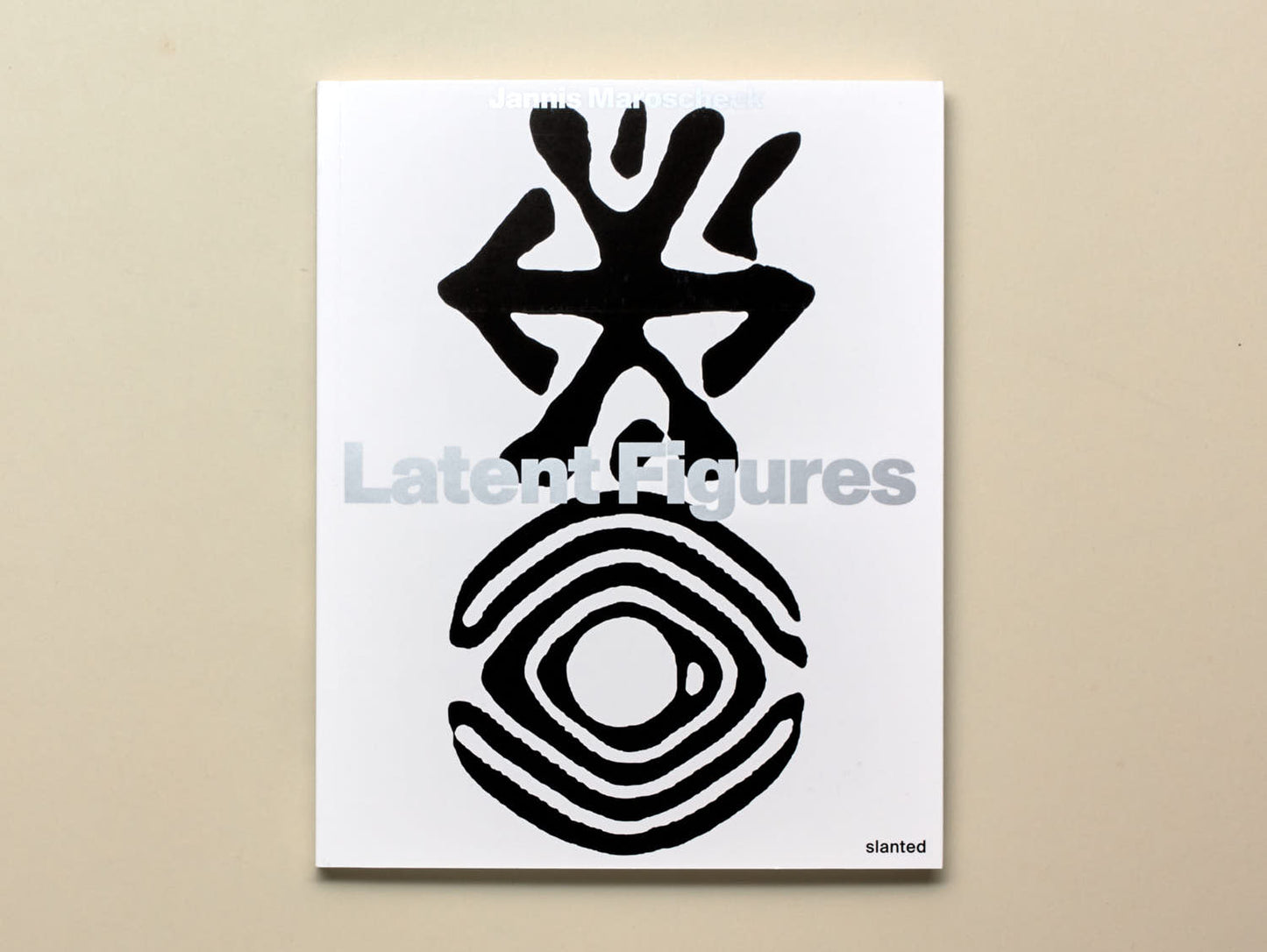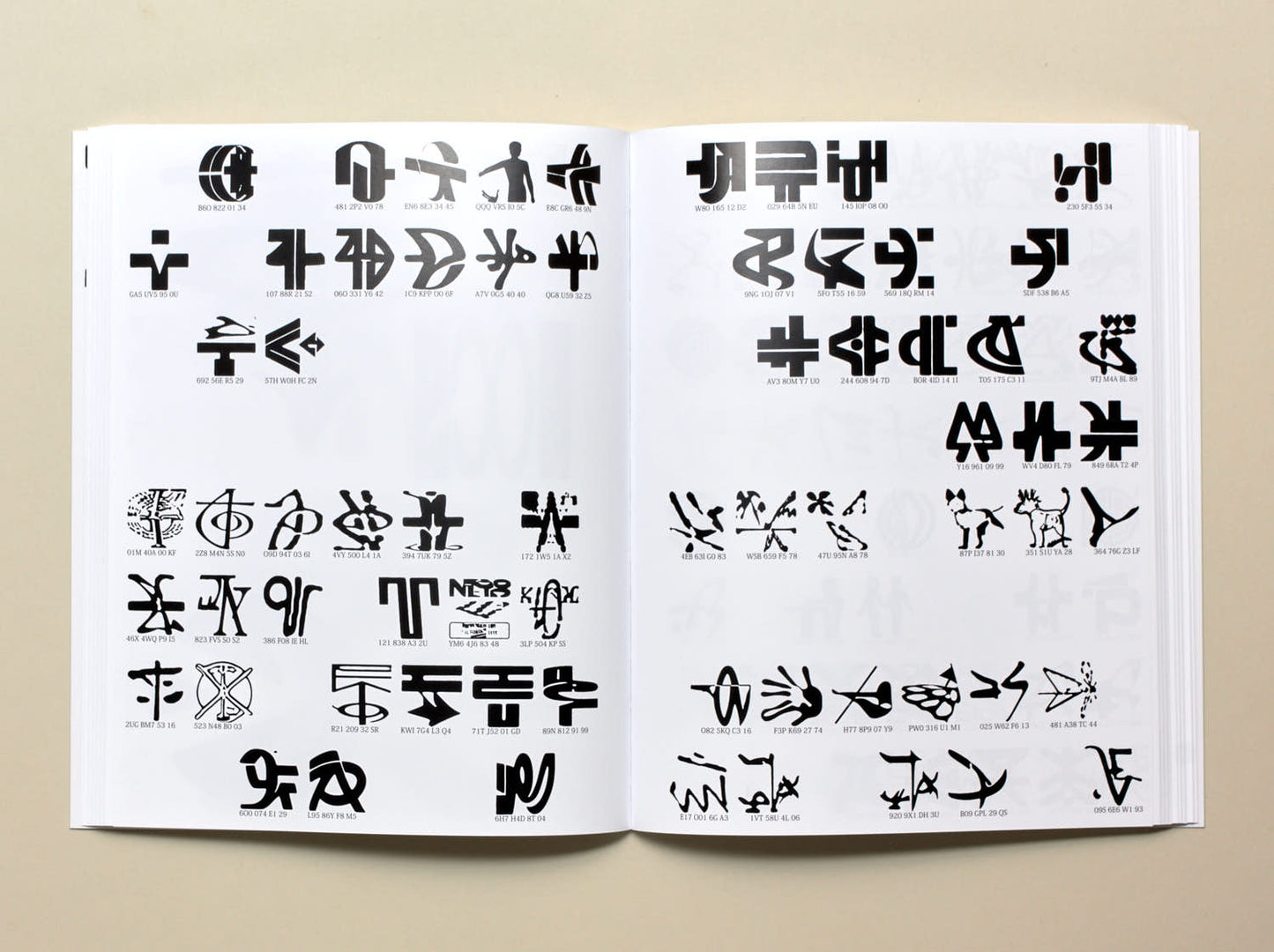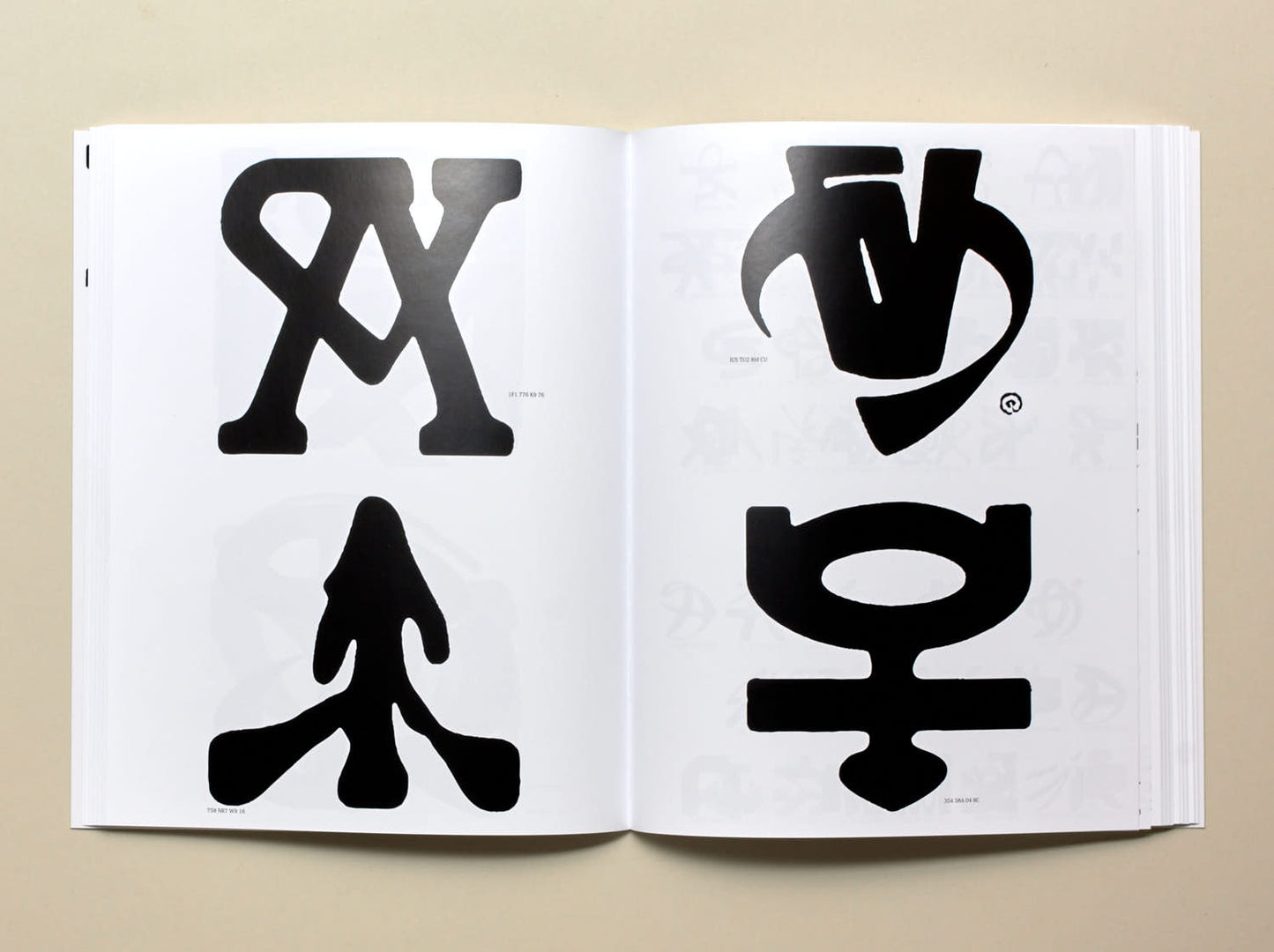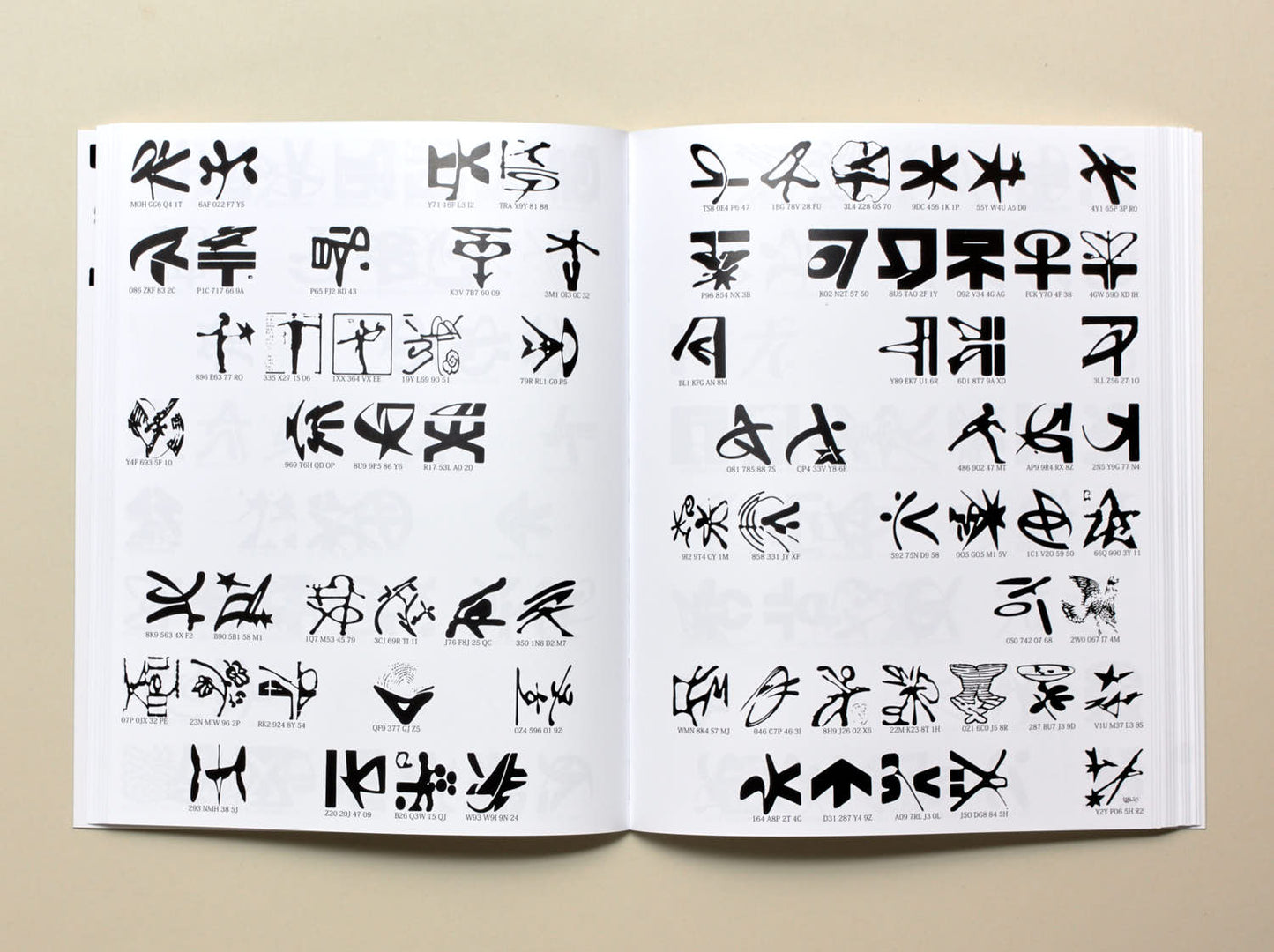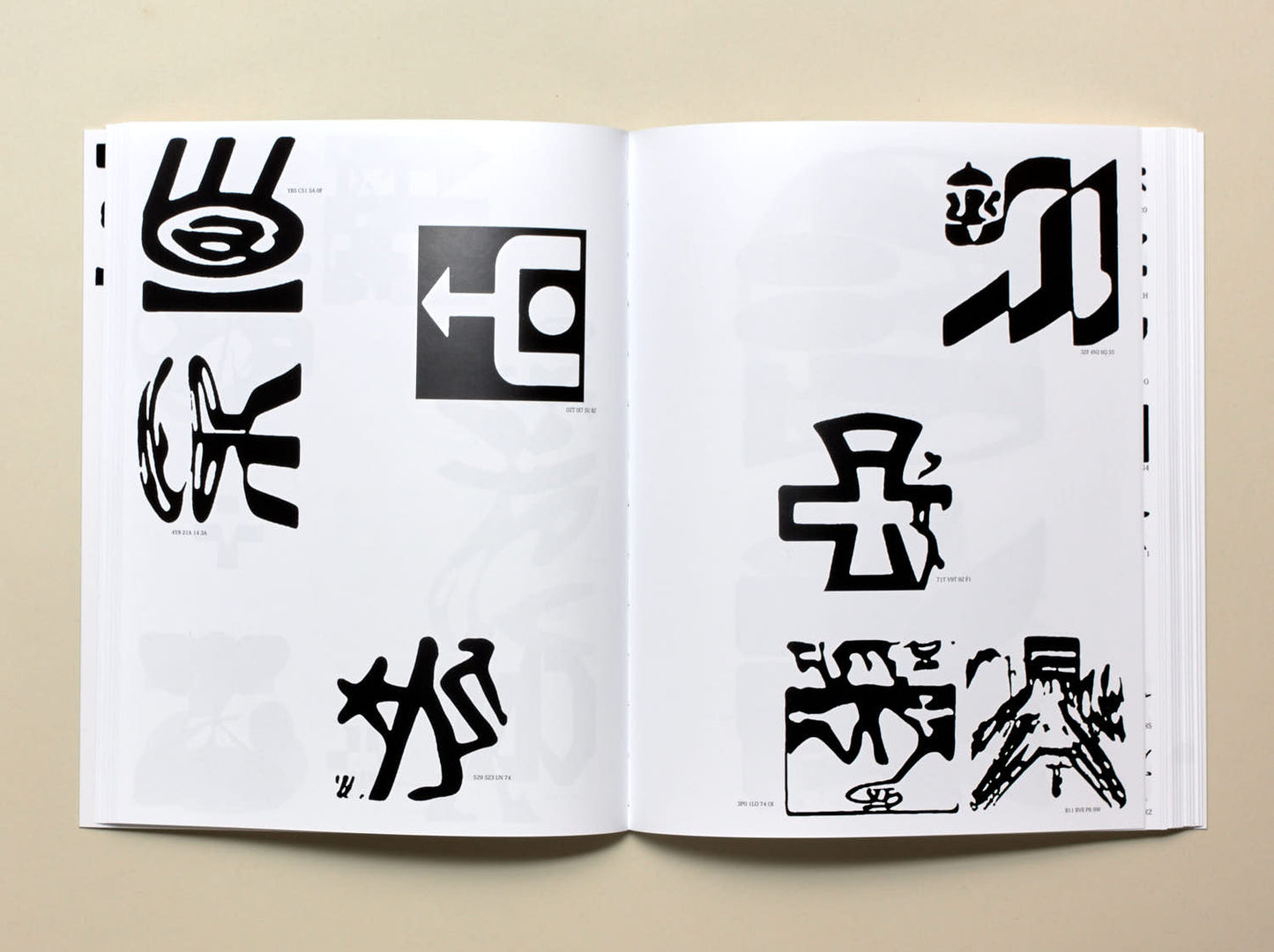Couldn't load pickup availability
Three years after Shape Grammars (2020), Jannis Maroscheck returns with an updated look on machine-generated graphics and the core motif of mass produced ideas: Latent Figures. Looking for forms of expression hidden between ancient runes and y2k logos, medieval monograms and clip art illustrations, hieroglyphs and stock icons, Maroscheck developed AI-based systems to merge the shared visual vocabulary designed by humans across eras, continents and cultures. The underlying process simulates human inspiration, but it is an analytical, objective process. The systems consider form as pure form. They draw no reference to real-world things. In doing so, they have a stubborn intensity to them, that seems less like human creativity and more like a strange, unstoppable force of nature.
The resulting catalog is a dive into the inner workings of an AI that has seen nothing but graphic shapes and symbols. With this sort-of-dictionary, Maroscheck creates a visual language that blends pragmatic graphic design aesthetics with elusive imagery. A collection of shapes that often approximate something we know or can understand, but their meaning doesn‘t quite want to resolve, they revolve around themselves, somewhere between meaning and nonsense. Offering a space to project ones own imagination and come across new ideas.
“When I think about it, something like a graphic form, black and white, defined only by its outline, feels quite limited in what it can express, what it can communicate. Then I look at it, like a blob of ink, continuously reshaping itself, in flux, automatic and open in all directions.” Jannis Maroscheck
